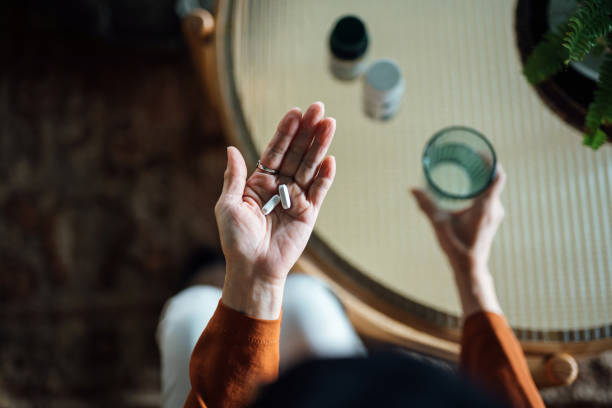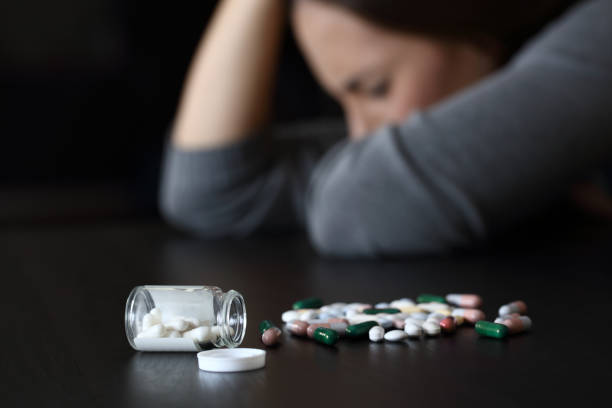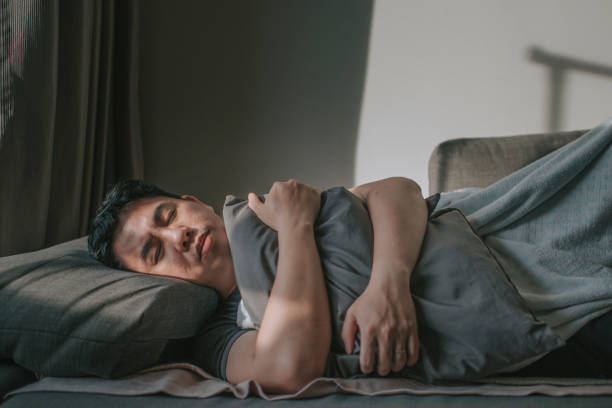Drugs and Medications
Can You Take Anxiety And Depression Meds At The Same Time
Are you struggling under the weight of anxiety and depression? If this is the case, you may be asking whether it is safe to take drugs for both ailments at the same time. The answer isn’t always obvious because it relies on a variety of circumstances, including the medications you’re taking and the severity of your symptoms. In this article, we’ll look at whether it’s safe to take anxiety and depression medications simultaneously, as well as the dangers and benefits of doing so.
Understanding Anxiety and Depression Medications
Before delving into the issue of combining anxiety and depression meds, it’s critical to understand what these medications are and how they operate. Anxiety and depression are two distinct mental health diseases, however they frequently coexist and share symptoms. Medications for these disorders are designed to relieve symptoms while also improving general well-being.
Anxiety drugs, such as benzodiazepines or selective serotonin reuptake inhibitors (SSRIs), act by relaxing the central nervous system and alleviating emotions of dread and worry. They can aid in the treatment of symptoms such as panic attacks, social anxiety, and generalized anxiety disorder.
Depression drugs, such as selective serotonin reuptake inhibitors (SSRIs) or serotonin-norepinephrine reuptake inhibitors (SNRIs), function by boosting the levels of neurotransmitters such as serotonin and norepinephrine in the brain. These drugs can aid with mood regulation, sleep improvement, and the reduction of emotions of despair or hopelessness.

The Importance of Proper Diagnosis and Treatment
It is critical to have an accurate diagnosis from a skilled healthcare expert before taking any medicine. Anxiety and depression can manifest differently in each person, and a thorough evaluation will assist establish the best course of treatment.
A healthcare professional may examine a variety of criteria, including the severity of symptoms, any underlying medical issues, and any prescription interactions. They may also evaluate your lifestyle, such as nutrition, exercise, and sleep patterns, as these can have a big impact on your mental health.
When it comes to managing anxiety and depression, proper diagnosis and treatment go hand in hand. Working together with your healthcare physician to create a tailored treatment plan that may involve drugs, therapy, lifestyle modifications, or a combination of these techniques is vital.
Common Medications for Anxiety and Depression
There are various drugs that are often recommended for anxiety and depression. Let’s take a deeper look at each of them and how they can aid with symptom management.
- SSRIs (Selective Serotonin Reuptake Inhibitors): SSRIs are a type of drug that helps raise serotonin levels in the brain. They are frequently used to treat both anxiety and depression. Fluoxetine (Prozac), sertraline (Zoloft), and escitalopram (Lexapro) are a few examples.
- Serotonin-Norepinephrine Reuptake Inhibitors (SNRIs): SNRIs increase serotonin and norepinephrine levels in the brain. They are frequently used for depression and may be useful in the treatment of certain anxiety disorders. Venlafaxine (Effexor) and duloxetine (Cymbalta) are two examples.
- Benzodiazepines: Benzodiazepines are short-acting medicines that help relieve anxiety symptoms temporarily. They act by boosting the effects of gamma-aminobutyric acid (GABA), a neurotransmitter that helps to calm the nervous system. Alprazolam (Xanax), clonazepam (Klonopin), and diazepam (Valium) are other examples.
- Beta Blockers: Beta blockers are typically used to treat high blood pressure and heart issues, but they can also help lessen physical symptoms of anxiety, such as trembling and rapid heartbeat. They function by preventing the effects of adrenaline. Propranolol (Inderal) and atenolol (Tenormin) are two examples.

Can Anxiety and Depression Medications Be Taken Together?
Individuals seeking assistance from both disorders frequently wonder whether anxiety and depression drugs can be taken together. While these medications can be used at the same time, it is critical to speak with a healthcare expert to ensure optimal dosage and avoid potential interactions.
Combining drugs that have comparable or overlapping effects can raise the chance of side effects or unpleasant reactions. Because both SSRIs and SNRIs can raise serotonin levels, using them together may result in a potentially fatal disease called as serotonin syndrome.
However, in certain circumstances, combining drugs for both anxiety and depression may be the most effective way to manage symptoms. Before making a suggestion, your healthcare practitioner will examine aspects such as the severity of your symptoms, your medical history, and any drug interactions.
Potential Drug Interactions and Side Effects
It is critical to be aware of potential drug interactions and negative effects when combining anxiety and depression drugs. Certain combinations can cause unpleasant side effects or impair pharmaceutical effectiveness.
Combining benzodiazepines, such as alprazolam (Xanax), with alcohol or other central nervous system depressants, for example, might have serious repercussions. It can produce drowsiness, respiratory depression, and even overdosage.
Drowsiness, dizziness, nausea, and sexual dysfunction are all frequent adverse effects of anxiety and depression drugs. However, these adverse effects do not affect everyone, and they can vary based on the medicine and individual conditions.
It is critical to provide your healthcare provider with a thorough list of any drugs, supplements, and herbal treatments you are currently taking in order to reduce the risk of drug interactions and side effects.

Consulting with a Healthcare Professional
It is critical to collaborate closely with a healthcare expert when dealing with anxiety and sadness. They will evaluate your symptoms, provide an accurate diagnosis, and suggest the best treatment strategy for your unique needs.
It is critical to check with your healthcare professional before making any adjustments if you are considering taking drugs for both anxiety and depression. Based on your specific circumstances, they will assess the potential risks and benefits of mixing drugs.
It’s crucial to remember that self-medicating or abruptly discontinuing medicine without medical supervision might be harmful to your mental health. To protect your safety and well-being, your healthcare professional will walk you through the process of starting, changing, or terminating drugs.
Alternative Treatment Options
While drugs can be helpful in treating anxiety and depression, they are not the only choice. Some people prefer alternate ways, while others find that a combination of therapy works best for them.
Cognitive-behavioral therapy (CBT) or interpersonal therapy, for example, can be quite effective in the treatment of anxiety and depression. These modalities assist people in developing coping techniques, identifying triggers, and addressing underlying issues that are contributing to their symptoms.
Changes in lifestyle can also help with anxiety and depression management. Regular exercise, a healthy diet, enough sleep, and stress-reduction strategies such as mindfulness or meditation can all help to improve mental health.
It is critical to investigate various therapy choices and determine what works best for you. Your healthcare practitioner can assist you in navigating this process and making recommendations based on your specific requirements and preferences.

Managing Anxiety and Depression with Lifestyle Changes
Aside from drugs and therapy, lifestyle changes can have a big impact on your overall mental health. Here are some ways for dealing with anxiety and depression:
- Exercise: Regular physical activity can improve mood, reduce anxiety, and improve general mental health. Most days of the week, aim for at least 30 minutes of moderate-intensity activity, such as brisk walking or cycling.
- Diet: A good, balanced diet is essential for mental wellness. Consume nutrient-dense foods including fruits, vegetables, whole grains, lean proteins, and healthy fats. Reduce your consumption of processed foods, sugary snacks, and beverages.
- Sleep: Make getting adequate sleep each night a priority. Set a consistent sleep schedule, develop a calming bedtime routine, and make your bedroom a sleep-friendly setting.
- Stress Reduction Techniques: Explore stress-reduction activities that work for you, such as deep breathing exercises, meditation, yoga, or journaling. These routines can assist to relax and calm the mind.
Support and Resources for Individuals with Anxiety and Depression
It might be difficult to deal with anxiety and despair, but you are not alone. There are several resources and support systems to assist you in navigating this journey:
- Support groups: Consider attending a support group so you can connect with people who are going through similar things. Sharing your experiences and thoughts with those who understand can bring validation and support.
- Therapy: Seek therapy from a competent mental health professional who has treated anxiety and depression. They can offer advice, emotional support, and evidence-based approaches to assist you in managing your symptoms.
- Online resources: Explore internet resources dedicated to mental health, such as credible websites, blogs, and forums. These platforms frequently give useful information, coping tactics, and personal experiences that can motivate and inspire you.
- Hotlines and helplines: If you are in a crisis or require emergency assistance, do not hesitate to contact helplines or crisis hotlines. Trained professionals are on hand 24 hours a day, seven days a week to offer aid and guidance.
Conclusion
Navigating the possibility of combining anxiety and depression medications has been a personal journey for me. Recognizing the potential benefits and risks, I understand the importance of consulting with a healthcare professional to ensure proper dosage, minimize potential interactions, and monitor for side effects. Decisions regarding medication combinations should be rooted in a comprehensive evaluation of my symptoms, medical history, and individual needs.
I’ve come to appreciate that medications are just one piece of the puzzle in managing anxiety and depression. Embracing a holistic approach that includes therapy, lifestyle changes, and a robust support system has become a significant part of my overall well-being strategy.
For those currently grappling with anxiety and depression, I want to emphasize that there is hope. With the right treatment plan and support, it’s possible to regain control and achieve a healthier, happier state of mind. I encourage you to reach out to a healthcare professional today and take that crucial first step towards a brighter future.


